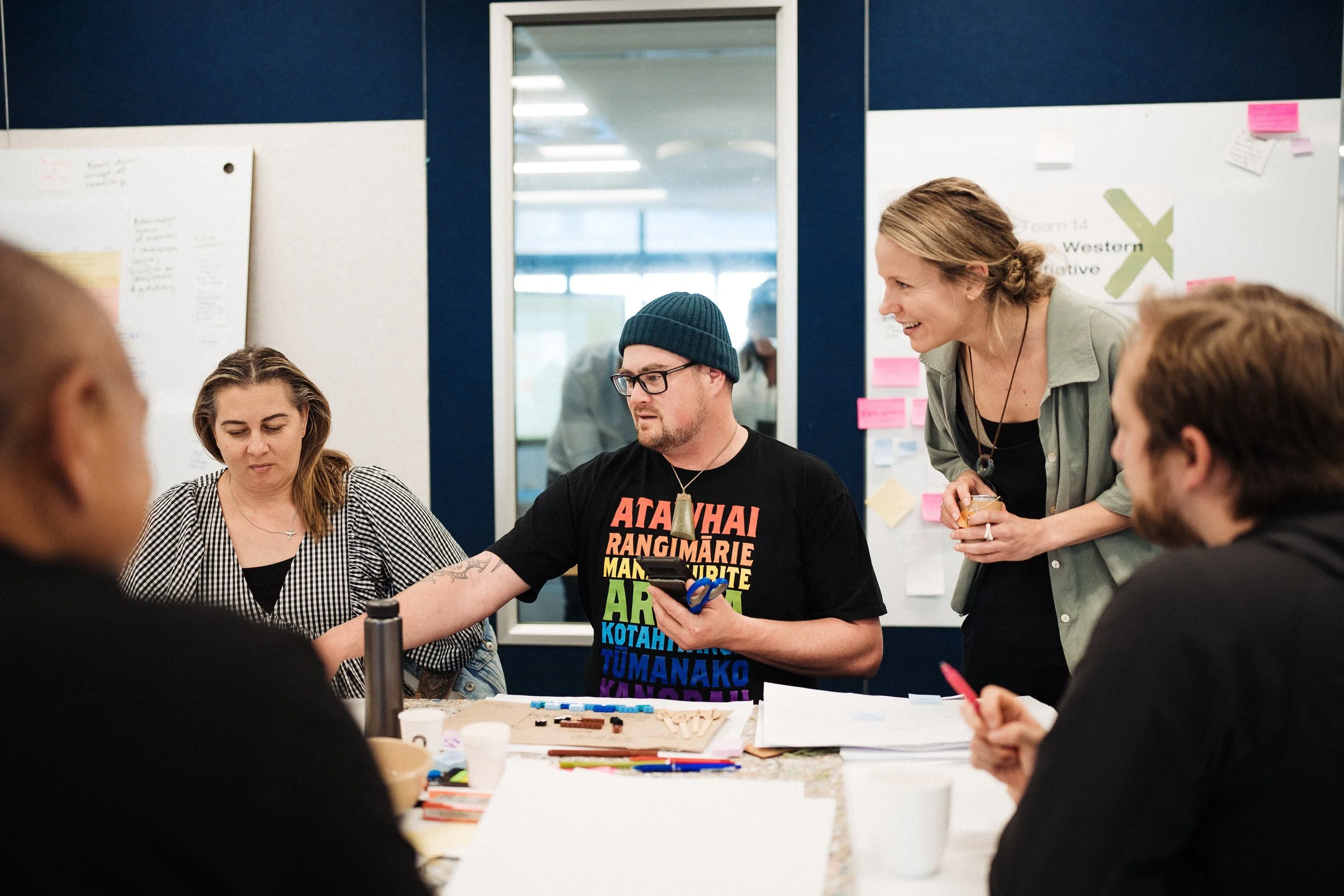Designing a cultural nutrient cycle for Aotearoa's circular economy
How might we decolonise the circular economy?
This is the all-important question raised at XLabs by The Western Initiative, a place-based initiative that works to find radical solutions to some of West Auckland’s most pressing social and economic challenges.
Comprising less than 5% of the world's population, indigenous people protect 80% of global biodiversity. In shaking up business-as-usual, we must incorporate both environmental justice and social justice to truly ensure a just and equitable transition for all.
To authentically support Māori and Indigenous voices in circular economy conversations and solutions, businesses should understand how to engage with Māori in ways that are reciprocal. Reciprocation ensures that the benefits that come from Indigenous knowledge are shared back with the community it came from. Thus, we avoid what the Western Initiative team articulates as cultural extraction, moving us from good intent to action, enhancing the mana of both parties, and restoring cultural capital.
The team tackled this challenge by developing the concept for an accreditation-based platform for cultural education and capability-building, to enable a “circular cultural nutrient cycle”, based on the practice of reciprocity. The team received some valuable feedback and insights from other XLabs team members, including Stuart from LeaderBrand and Diane from Rescued — which demonstrates the value of XLabs in creating space for unlikely collaborative collisions.
Using Circularity’s Circular-by-Design method of Regenerative Behaviours, the team’s platform would enable iwi, hapū, whānau, and tauiwi alike to strengthen relationships and heal the ongoing harms of colonisation within a safe space. The solution would combine live sessions, a digital platform, and active mentoring around how to genuinely engage with Māori to regenerate both Papatūānuku and Māori communities alike.
Since the XLabs LIVE week, the team have been socialising their solution with different groups, explored the idea of a roadshow to share it with various Māori groups, and have received excited response across the board. We look forward to supporting and learning from the Western Initiative team in the development of their project.
XLabs is made possible through partnership with Ministry for the Environment/Manatū mō te Taiao, Tātaki/Auckland Unlimited, New Zealand Trade and Enterprise, Toitū Envirocare, Kantar, Callaghan Innovation, Trees That Count, Greenhouse Capital New Zealand, and Circularity.

